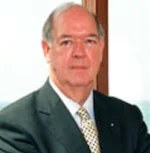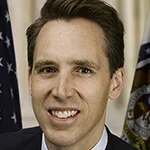 |
| Rene Henry |
In 2004, former Sen. Al Franken authored “Lies and the Lying Liars Who Tell Them.” With the voluminous number of lies throughout all segments of society today, he could write a book every month, if not every week. The US has become a country with a culture of lies and liars.
Most people expect politicians to lie. And it is legal. In 1998 the Supreme Court of the State of Washington, by a vote of 5-4, reaffirmed a decision it made in 1984 that it was all right for a politician to lie. I believe that the writers of the First Amendment would not consider this freedom of speech. Six members of SCOTUS would probably disagree with me.
The Ethics Resource Center reports that telling lies is a universal problem and is increasing. It says the businesses where people are most likely not, to tell the truth, are hospitality and food; and arts, entertainment and recreation—both at 34 percent. There are liars today in every segment of our population, including judges, lawyers, physicians, educators, executives, coaches and players in sports; and even members of the clergy, law enforcement and news media.
I’ve been lied to by companies, organizations, institutions and individuals. One lie I keep hearing from corporate America is, “I work in the office of the president.” I’ve reported directly to several presidents during my career and always had an adjacent office. So, when someone tells me, “I work in the office of the president,” should I assume s/he is physically located a few steps away from the head of the company? No. More often than not today, that person has been given a glorified title and may be working hundreds or thousands of miles away from headquarters.
We have a generation of CEOs and presidents responsible for this culture. Even worse is the fact that they are directing employees to lie. There are some twists to this, with some using the title of “chairman’s office” or “executive office.” I don’t know where the absurd practice of companies having employees say they work in the office of the president when they physically are not. It is misleading, unethical, deceitful and a lie. Even worse, few of these programmed employees have no more authority than a file clerk to resolve an issue. These so-called executives have no last names, no titles, use a generic email or phone number and are great at frustrating the customer.
I always get my best customer service from—and have the most respect for—those companies that are honest and where such offices are titled customer care, support or help. This at least expresses the organization’s intent.
The FBI is the federal enforcer of lies. The FBI can lie to you, but anyone who lies to a federal agent faces up to five years in prison and a $250,000 fine. Martha Stewart and former Illinois Governor Rod Blagojevic were sent to prison for doing so, but recently the Department of Justice has not prosecuted liars. Most outrageous were two FBI agents who publicly admitted they lied to the FBI regarding their investigation of young girl gymnasts who were sexually abused. Some 70 young girls were assaulted because one agent was derelict. DoJ has said it does not intend to prosecute either agent. Perjury is lying under oath, and I cannot recall DoJ recently prosecuting anyone for this crime.
Because of the multitude of lies being spread in media and especially on social media, several major newspapers created a position of Fact Checker. The Washington Post reported in 2017 that in just his first 466 days in office that President Donald J. Trump made 3,000 false or misleading claims. The Post added that this did not include the number made by his White House staff. False or misleading statements obviously have been made by other administrations but not in comparable numbers.
The Trump Administration added new words to our vocabulary: “fake news” and “alternative facts.” Former White House communications director Hope Hicks told a Congressional committee that she told “white lies.” She did not explain the difference between a “white lie” and a lie. To me, a lie is a lie, period. Mark Twain wrote: “A lie can travel halfway around the world while the truth is putting on its shoes.” Or consider the philosophy of Seinfeld’s George Costanza: “It’s not a lie if you believe it.”
The worst liars are those who call truthful facts lies. Recently a 10-year-old rape victim was denied an abortion in Ohio and had to go to Indianapolis for help. An aggressive media and social media campaign called the story of the young girl a hoax and a lie for a week or more until the district attorney in Columbus announced an arrest.
I believe liars lie because we have a generation of people who are so vulnerable that they believe almost anything. We have a generation that stopped reading, and we’ve lost great magazines and scores of local newspapers. Too many people only have the retention of a soundbite and are highly susceptible to believing the lies and propaganda that are so prevalent on social media. And when a lie is repeated and repeated over and over again, some people begin to accept it as a fact.
In 1736 The College of William & Mary became the first college to establish an Honor Code. Members of the Honor Court are students elected by their peers to enforce the rules. Anyone guilty of lying, cheating or stealing is expelled. In nearly three centuries since, of the 3,982 colleges that are degree-granting postsecondary institutions, only 67 other colleges and universities, including the military academies, have an Honor Code. This is not something of which higher education can be proud. I was disappointed when I found that not one of the 68 had an Honor Code that held its administration, faculty, staff or employees to the same ethical standards as its students. And why not an Honor Code for alumni?
If more companies, organizations and institutions would establish and enforce an Honor Code, perhaps in a couple of generations we may see an effort to eliminate all misleading and deceptive practices, along with an emphasis on transparency and always telling the truth. How wonderful it would be to see a society that emphasizes ethics, honesty, integrity and truth.
I like to ask, “When you know someone has lied, how do you know if they are ever telling the truth?”
***
Rene Henry writes on a variety of subjects and is the author of 10 books. He believes that those who do not follow the principles he outlines in his book “Customer Service – the cornerstone of success” will soon need to buy a copy of his book “Communicating In A Crisis.”


 Democrats play their favorite game, which is bashing Big Oil for its effort to cast doubt on global warming... Wingnut Marjorie Taylor Greene justified her vote against the Antisemitism Awareness Act by sputtering antisemitic nonsense... The deeply politically polarized USA stands united in worries about 2024 election coverage.
Democrats play their favorite game, which is bashing Big Oil for its effort to cast doubt on global warming... Wingnut Marjorie Taylor Greene justified her vote against the Antisemitism Awareness Act by sputtering antisemitic nonsense... The deeply politically polarized USA stands united in worries about 2024 election coverage. What would you do if you have received a call from one of Musk’s few remaining top lieutenants to see if you would be interested in advising him on PR matters?
What would you do if you have received a call from one of Musk’s few remaining top lieutenants to see if you would be interested in advising him on PR matters?  Nike finally throws in the towel and admits that its new MLB uniforms are a flop... A good chunk (34 percent) of TikTokers support a ban on the Chinese app.... "Lede of the Week Award" goes to Wall Street Journal reporter Angus Berwick for story abourt John Jacob Astor IV's gold pocket watch.
Nike finally throws in the towel and admits that its new MLB uniforms are a flop... A good chunk (34 percent) of TikTokers support a ban on the Chinese app.... "Lede of the Week Award" goes to Wall Street Journal reporter Angus Berwick for story abourt John Jacob Astor IV's gold pocket watch. Republican tough guys Josh Hawley and Tom Cotton want Biden to send the National Guard to Columbia University to put an end to student protests... Bernie blasts Bibi for insulting America's intelligence by equating criticism of Israel's government with antisemitism... German court convicts former financial PR exec who claims he wasn't aware that trading on tips is illegal.
Republican tough guys Josh Hawley and Tom Cotton want Biden to send the National Guard to Columbia University to put an end to student protests... Bernie blasts Bibi for insulting America's intelligence by equating criticism of Israel's government with antisemitism... German court convicts former financial PR exec who claims he wasn't aware that trading on tips is illegal.  Southern governors claim they know what's best for their working class, and it's not pay raises... A Ukrainian human rights group played a key role in convincing House Speaker Mike Johnson to hold a vote to send arms to Ukraine, Israel and Taiwan... Trump Media & Technology Group blames short-selling and not lousy outlook for its stock slump.
Southern governors claim they know what's best for their working class, and it's not pay raises... A Ukrainian human rights group played a key role in convincing House Speaker Mike Johnson to hold a vote to send arms to Ukraine, Israel and Taiwan... Trump Media & Technology Group blames short-selling and not lousy outlook for its stock slump.


 Have a comment? Send it to
Have a comment? Send it to 
Jul. 28, 2022, by Joe Honick
Of course veteran Rene Henry is angry, frustrated and damned accurate in his critical commentary. There are of course means by which it is possible to test the valldity of claims that veteran journalists and others can use, but the very challenge in the process urge some work in these areas.
That said, a long list of media, sponsored and otherwise, might take an inward look to insure not only accuracy but balance, whatever balance really might mean. With media monopolies and specially "aimed" propaganda media expanding beyond any sense of ethical or regulatory moderation, things will not get much if any better.
We used to merely call for "civility" in public discourse. Sadly and dangerously, being civil and also lying are an explosive and destructive combination.